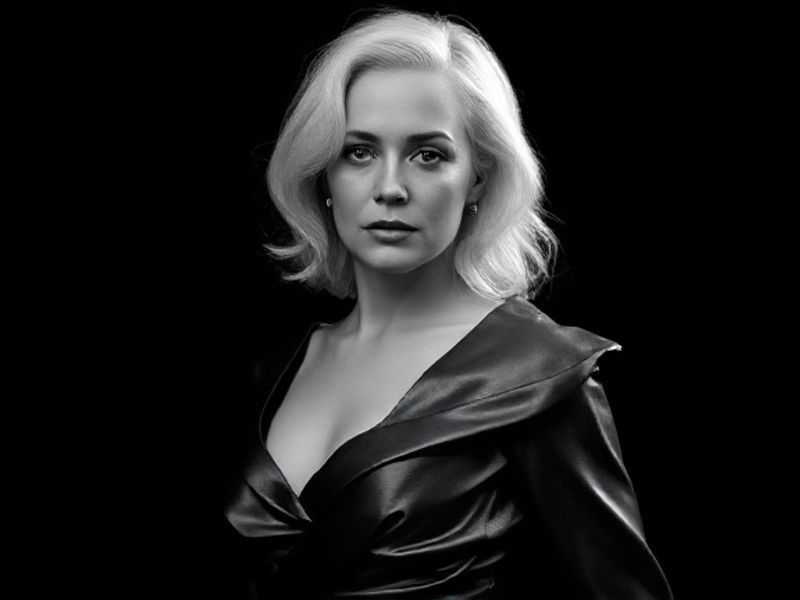Gwendoline Christie: The 6-Foot-3 Export Reshaping Global Pop Culture—and Airport Security Lines
From the vantage point of anyone who’s ever tried cramming their knees into an economy seat between Dubai and São Paulo, Gwendoline Christie’s 6-foot-3 silhouette already feels like a diplomatic incident. Airlines designed for the average Homo sapiens (average height generously rounded down by marketing departments) simply aren’t built for her; nations, however, are slowly re-engineering themselves around her gravitational pull. It’s 2024, and the actress once best known for occupying the moral high ground in Westeros is now busy occupying every streaming service from Mumbai to Minneapolis—proof, if any were needed, that global power now comes in two flavors: semiconductor chips and sheer screen presence.
Christie’s career arc is a case study in how pop culture has become the new soft-power currency, traded on the same exchanges that once haggled over bananas and oil futures. When she strides into a scene, the camera doesn’t just tilt up; entire worldviews have to recalibrate. Consider Thailand, where local censors spent three sleepless nights debating whether Brienne of Tarth’s shoulder width constituted “inappropriate influence on youth.” (They settled on a compromise: pixelate the sword, leave the cheekbones.) Meanwhile, Brazilian cosmetics conglomerates launched an emergency task force to bottle whatever gene sequence produces that jawline, proving once again that late capitalism will attempt to monetize anything except climate change.
Her post-Game of Thrones résumé reads like a NATO summit guest list: Star Wars, Wednesday, The Sandman—each franchise a multilateral alliance with its own trade disputes and border skirmishes. Disney+ executives in Singapore whisper that viewership spikes every time Christie appears, a phenomenon economists now call the “Gwendoline Christie premium,” measured in the same units previously reserved for crude oil. In Nigeria, bootleg DVDs of her scenes circulate like a parallel currency undercutting Netflix subscriptions—piracy as economic stimulus, courtesy of a woman who can loom over your moral failings without even raising an eyebrow.
Of course, height is only a metaphor until it isn’t. In South Korea, where the beauty-industrial complex has the GDP of a midsized European country, Christie’s refusal to shrink—literally or figuratively—has sparked think-pieces about “tall privilege” and the tyranny of short kings. Seoul’s subway now runs etiquette campaigns showing commuters how to offer seats to “tall guests of honor,” a euphemism so polite it could only emerge from a society that’s weaponized courtesy. Meanwhile, British tabloids oscillate between celebrating her as “national treasure” and accusing her of “architectural intimidation” when she stands next to medieval doorframes. The empire that once ruled a quarter of the globe now frets about lintel clearance; irony enjoys a long half-life.
Behind the memes and metrics, Christie keeps nudging the Overton window of what female protagonists are allowed to look like, sound like, and—most dangerously—want. Russian state television recently denounced her portrayal of Lucifer in The Sandman as “a psy-op to emasculate Slavic men,” which is either high praise or the most creative excuse for vodka sales since the invention of winter. In Argentina, feminist collectives screen her fight scenes in public squares, turning each parry and thrust into a crash course on consent culture. Somewhere in all that choreography, a blade flashes, a metaphor lands, and another patriarchal tradition files for bankruptcy.
Yet the most subversive act might be her wardrobe choices on the red carpet—architectural gowns that double as commentary on surveillance capitalism. Paparazzi lenses, calibrated for the standard starlet frame, glitch when confronted with her proportions, producing images that look like poorly coded deepfakes. The result: a momentary blind spot in the global panopticon, a pocket of privacy sewn from silk and defiance. In an age when your smart fridge knows your cholesterol better than your doctor, that’s no small feat.
So when the history books eventually tally the soft-power exports of the early 21st century, somewhere between K-pop and sanctions regimes, they’ll probably add a footnote: one statuesque Brit who reminded the planet that presence is still nine-tenths of international law. Until then, keep your neck craned and your passport stamped—Gwendoline Christie is coming to a screen near you, and the world is quietly rearranging its furniture to make room.







